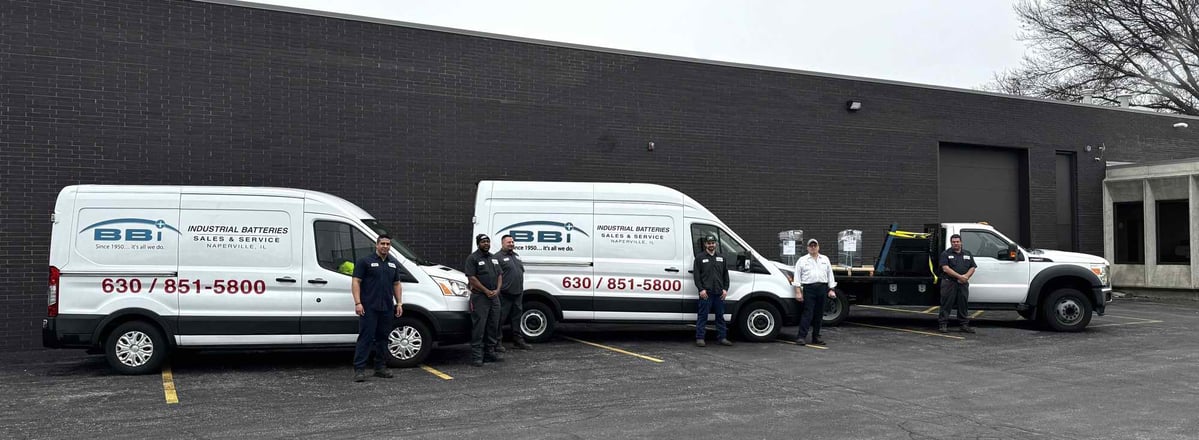
Training Staff on Forklift Batteries Handling
Handling forklift batteries is a critical aspect of warehouse and industrial operations. Proper training ensures that staff not only understand the mechanics of these powerful energy sources but also appreciate the safety protocols necessary to avoid accidents and injuries. In this guide, we will delve deep into the various facets of training staff on forklift batteries handling, including best practices, safety measures, and maintenance tips.
Understanding Forklift Batteries
Before diving into training specifics, it’s essential to grasp what forklift batteries are and their importance in daily operations.
What Are Forklift Batteries?
Forklift batteries are typically lead-acid batteries that provide the power needed to operate electric forklifts. These heavy-duty batteries come in various sizes and capacities, depending on the lift truck's design and intended use. They generally consist of:

- Lead Plates: These react with sulfuric acid to produce electricity.
- Electrolyte Solution: A mixture of water and sulfuric acid that facilitates the chemical reaction between lead plates.
- Battery Case: A robust outer shell that protects internal components.
Forklift batteries can weigh anywhere from 1,500 to 5,000 pounds (680 to 2,268 kg), making them a substantial part of any lifting operation. The weight and chemical composition necessitate careful handling during installation, removal, or maintenance.
Why Is Training Important?
Training staff on forklift batteries handling is crucial for several reasons:
Training Staff on Forklift Batteries Handling
When it comes to training personnel on handling forklift batteries, there are several key components that should be included in your program.
Safety Protocols for Battery Handling
Safety is paramount when dealing with forklift batteries. Here are some essential protocols every employee should be trained on:
- Employees must wear appropriate PPE such as gloves, goggles, and aprons when handling batteries.
- Since these batteries are heavy, correct lifting techniques should be emphasized. Use mechanical aids like pallet jacks or hoists whenever possible.
- Employees should know how to respond in case of a battery leak or explosion. This includes knowing the location of safety showers and eyewash stations.
- Train staff on how to manage acid spills safely by utilizing neutralizing agents designed for sulfuric acid.
- Forklift batteries should be stored in a designated area away from direct sunlight and extreme temperatures.
- Emphasize the importance of following manufacturer guidelines while charging batteries to prevent overcharging or damage.
Routine Maintenance Training
Regular maintenance is vital for maximizing the lifespan of forklift batteries. Here's what your training program should cover:
- Train staff to perform routine checks for corrosion at terminals and ensure all connections are secure.
- Staff must learn how to check electrolyte levels regularly; underfilled cells can lead to overheating or permanent damage.
- Instruct employees on how to clean battery terminals carefully using baking soda solutions without causing damage or creating hazards.
- Teach employees how to assess battery performance through metrics like charge cycles and discharge rates.
- Train staff on recognizing signs that indicate it's time for a battery replacement—such as decreased performance or unusual noises during operation.
- Encourage maintaining logs detailing inspections, maintenance work done, and any incidents related to battery handling.
Hands-On Training Sessions
Theory is essential, but practical experience cements knowledge more effectively than anything else could! Incorporating hands-on sessions will equip your workforce with real-world skills they can rely upon when operating within a busy warehouse environment:
Essential FAQs About Forklift Batteries Handling
1. What should I do if I accidentally spill battery acid?
In case of an acid spill, immediately evacuate the area if necessary; then neutralize the acid with sodium bicarbonate (baking 48 volt flat plate forklift batteries soda) until it stops bubbling before cleaning up with protective gear on hand!
2. How often should forklift batteries be maintained?
Forklift batteries require regular maintenance checks every month; however frequent inspections may be necessary based on usage patterns during peak operational periods!
3. Can I charge my forklift battery overnight?
Yes! Charging overnight is common practice as long as you follow manufacturer guidelines regarding maximum charge times—just ensure proper ventilation!
4. What happens if I overcharge my forklift battery?
Overcharging leads not only reduces efficiency but also shortens overall lifespan significantly while increasing risks associated with thermal runaway!
5. How do I determine when my forklift battery needs replacing?
Signs include reduced performance levels (e.g., shorter runtimes), physical deformities like bulging sides/smoky appearance & unusual noises during operation—keep an eye out!
6.Will improper maintenance void my warranty?
Yes! Not adhering strictly to prescribed care routines could result in warranty voidance; always consult documentation provided by manufacturers directly!
Conclusion
By investing time into comprehensive training programs focusing on safe handling practices associated with forklift batteries—as well as ongoing education aimed at maintaining optimal performance—you enhance workplace efficiency while significantly reducing risks involved with these powerful devices!
Ultimately ensuring every employee feels confident managing their responsibilities makes all the difference when it comes down running smooth operations 24 volt flat plate forklift batteries day after day! Remember: safety first always pays off in both productivity gains & peace-of-mind too!